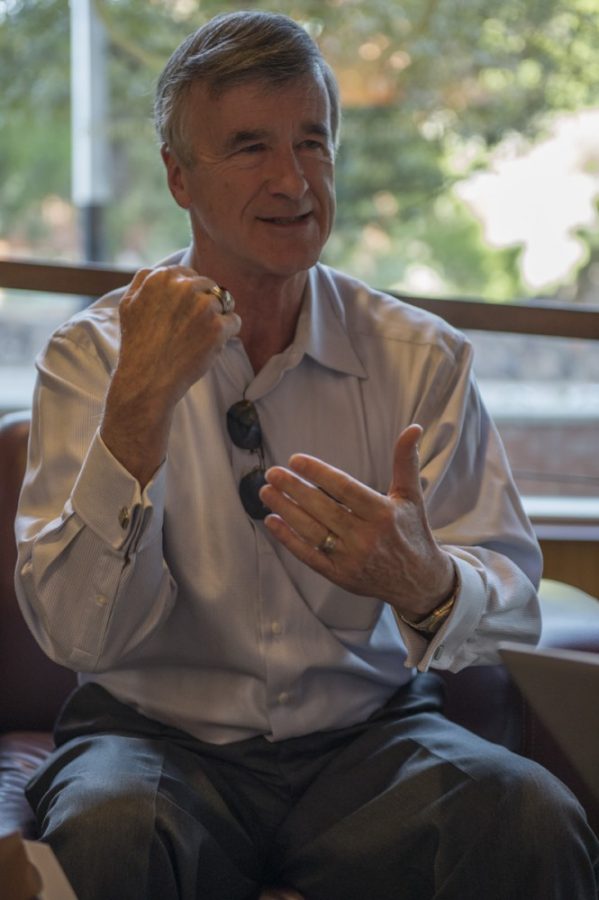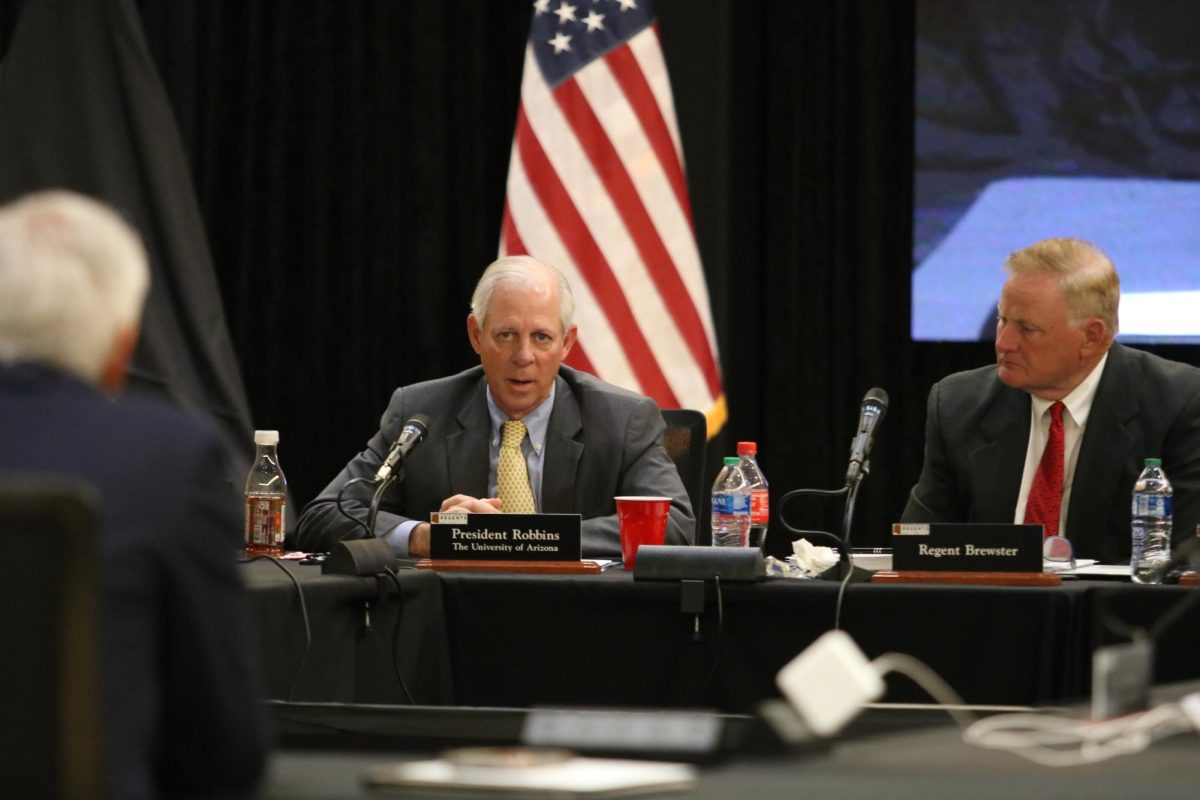Former UA president Robert Shelton is back in town. Recently resigning from the his position as executive director of the Fiesta Bowl, Shelton has returned to Tucson after being selected to be the Research Corporation for Science Advancement (RCSA) foundation’s new president. The Daily Wildcat caught up with him to see what life is like post-presidency.
DW: What was it like transitioning from being in administration at a university to being the [executive] director [of the Fiesta Bowl]?
Shelton: Well it was actually stimulating. The Fiesta Bowl had a lot of issues that needed to be improved, and fortunately I had a very supportive board. What I brought to the Fiesta Bowl was very high ethical standards, high morals and a lot of contacts. I had been on the [bowl championship series] presidential oversight group representing the Pac-10. … I knew those presidents, I knew a lot of the commissioners, but I had to get to know more of them. I spent a lot of time … making clear that the scandal is past us, that you shouldn’t throw us out of the BCS. There was a question of whether the Fiesta Bowl would be able to stay in the BCS and so we kind of put that in order. … We just had a very good organization, so it was fun, it was stimulating, I felt like I was making a difference. In fact, that’s what I asked them when I first talked to them. I said, ‘Do you think I can bring added value?’ … They said, ‘Yes, and here’s why,’ and they convinced me.
Were there any similarities or differences?
Of course there are more dimensions to a university presidency job, but a lot of the challenges are similar. How do you bring ethical leadership, how do you bring strong values, how do you bring an open and transparent approach to what’s happening, and how do you relate to the people. How do you stand up and support the people that are important and sometimes make hard decisions to let people go if they aren’t of the right mindset? So there’s some similarities, namely dealing with people, and then there’s some differences of scale.
The Chronicle of Higher Education had a story this week on how administrative jobs have grown by 28 percent in the last decade, but faculty salaries have remained flat. What are your thoughts on that?
I think there are some important conclusions to be drawn from this. First of all, faculty salaries have not now, nor really in my lifetime, been the driving force behind the added expense of college. The growth in administration I think parallels the growth in regulatory responsibilities that come to universities and the growth in the need to raise funds through private donations. … Society, as complex as it is, has loaded a lot of overhead on, and some of it very important some of it maybe not so important. … When you look and see that universities like the UA — I don’t know what the number is now — probably get 20 percent, maybe 15 percent of their funding of their budget from the state, where do you go to get the other 80-85 percent? That takes a whole set of administrators called fundraisers to go out, whether it’s for the university or for the department of history or the department of philosophy or the medical school. You can see how it’s important to examine the numbers, but there might be a lot of reasons for those numbers. And if you want to reverse that trend, just like if you want to reverse the trend of adjunct faculty growing faster than tenure track faculty, then you have to look behind the numbers.
What do you think of President [Ann Weaver] Hart being the first woman president of the UA?
I think it’s great that there are more women in these roles, absolutely. I’ve met Ann. I certainly wish her well. I know she’s got a big job, but you know I’ve said this many, many times over the years: Why on earth would a society ignore half of the talent pool, i.e., women? Why would a society ignore talent from a diverse group? It’s a foolish approach. If you want to build a strong society, you want to grab that talent and enhance it and grow it any way you can.









